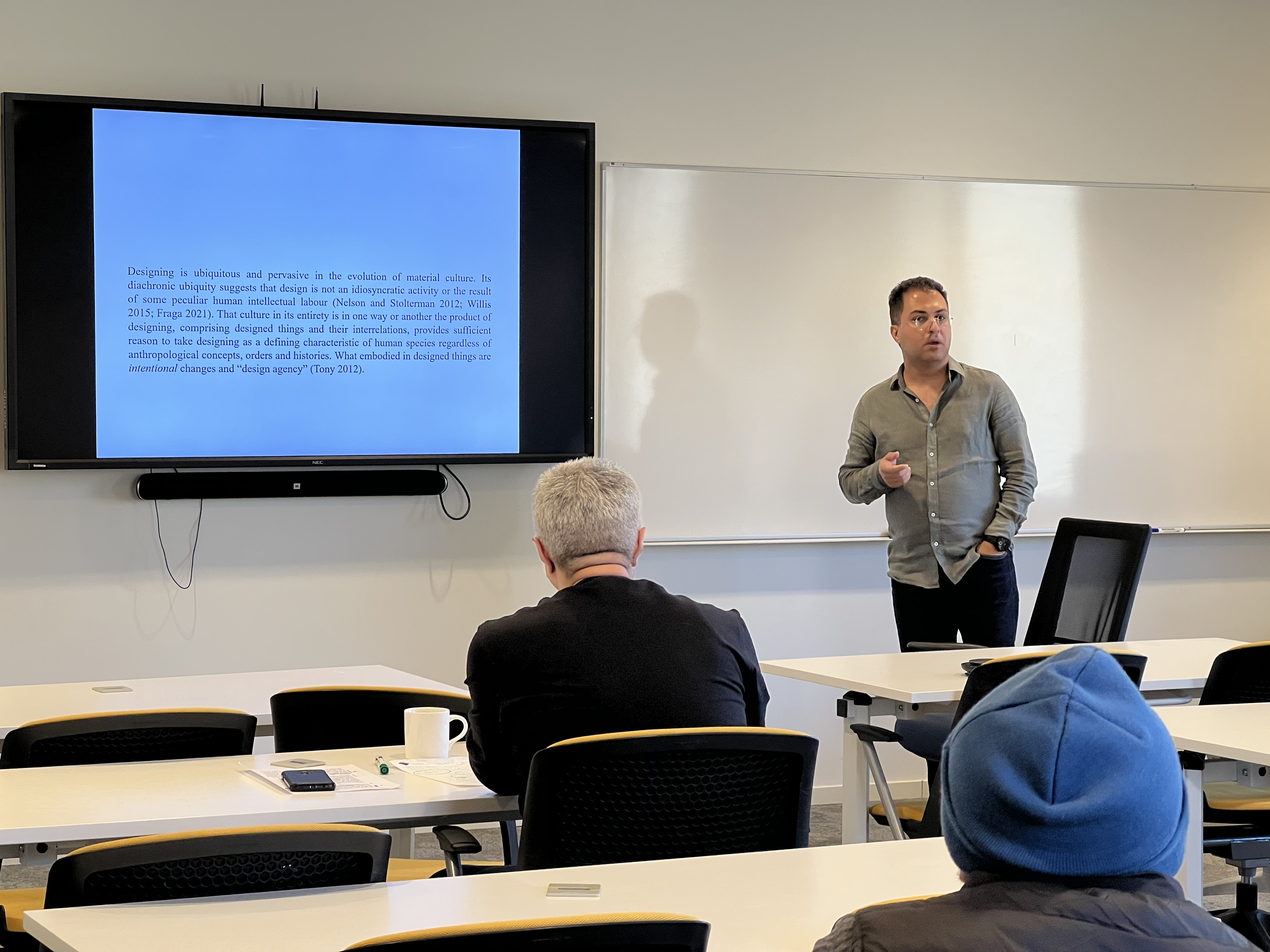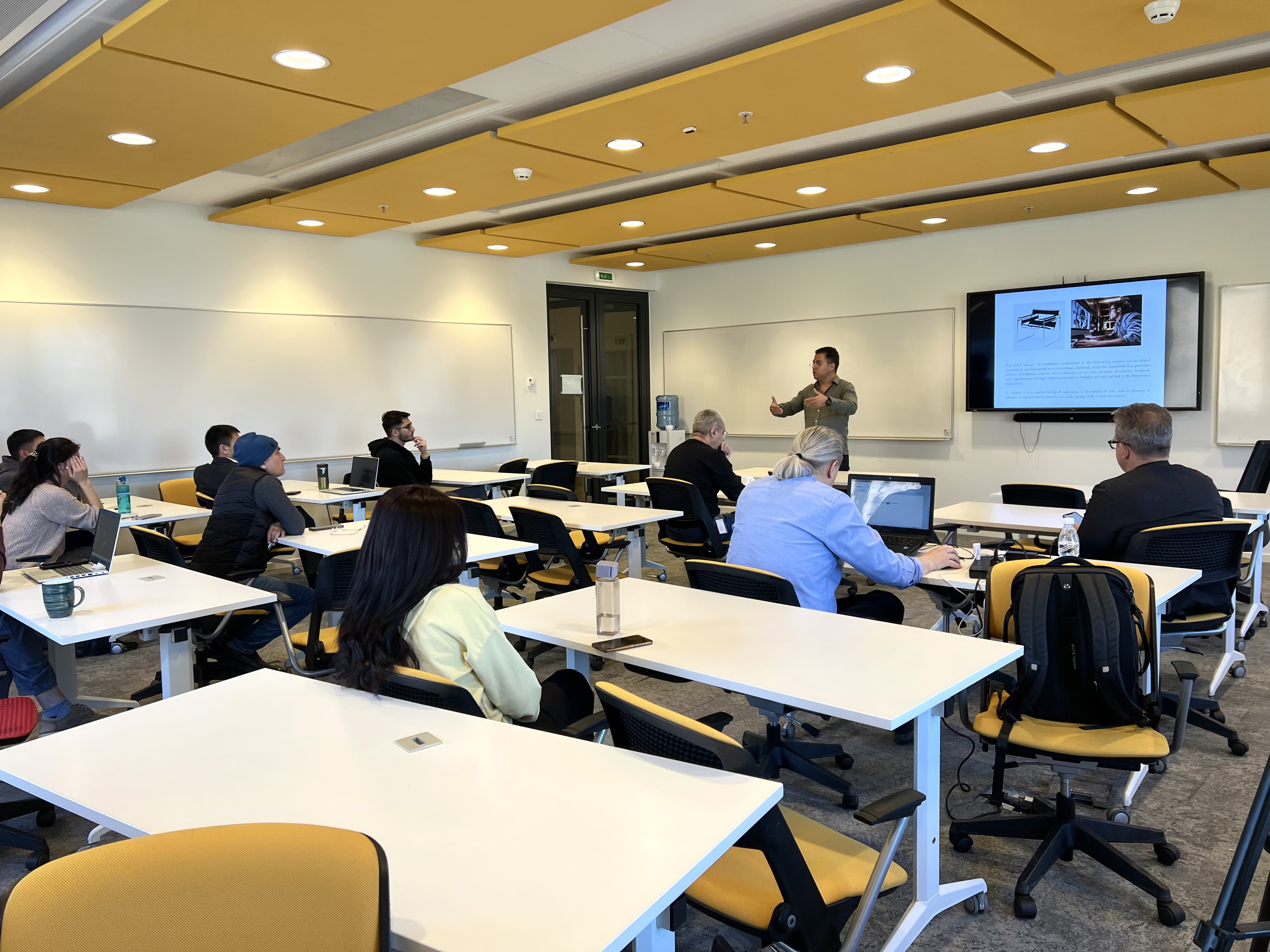
Public Lecture | Design Thinking: Origins and Problems
In this paper it is attempted to chart and exposit terra incognito of the transcendental intuition of ‘non-being’, a peculiar species of négatité and a form of consciousness which underpins the phenomenal capacity for design thinking, and which serves as the ground of the ‘designing being-relation to the world’. The paper’s contention is that the transcendental intuition of the non-being indwells the agent’s being-relation to the world as a continual tension in that neither does the agent relinquish its ontological leverage and submit altogether to the world’s curbs and dictates, nor is it able to subdue satisfactorily or settle into the world once and for all. By way of phenomenological-hermeneutic analysis, it is endeavoured to argue that design thinking occurs by virtue of a phenomenal transition between the a priori ‘not-being’, the basis of ‘that-which-is’, and the transcendental intuition of non-being through which that-which-is-not-yet announces itself. Along with this, the other two species of négatité as ‘absence’ and ‘non-existence’ are clarified and contrasted with not-being and non-being, which have widely been used in the literature interchangeably as identical terms. In conclusion, it is argued that not only has design thinking in its unadulterated, originary mode historically preceded scientific thinking, but it also has served as the foundation of its formation. In short, scientific thinking is a derivative, reformed application of design thinking; it indeed supervenes upon it.
About the Speaker
Dr Soheil Ashrafi is Assistant Professor of Communications and Media at the Naryn campus. Prior to joining UCA, he was Director of Culture and Communications and Chair of Research and Scholarship at Raffles College of Design and Commerce, in Sydney, and Associate Colleges in Hong Kong, Singapore, Malaysia, India and Sri Lanka.
In this dual capacity, he has been afforded vast experiences in developing, delivering, and supervising undergraduate and postgraduate courses in theory and history of design, media, visual communications, cultural studies, and research, ethics and methods.
His pedagogical philosophy rests on research-based teaching and he considers the classroom a space for dialogue where a colourful spectrum of voices and ideas find expression through critical thinking, higher-perspective observation, and experimentation.
The public lecture series is organised within the framework of School of Arts and Sciences, University of Central Asia Research Cluster: Modernity in Central Asia: Identity, Society, Environment.















